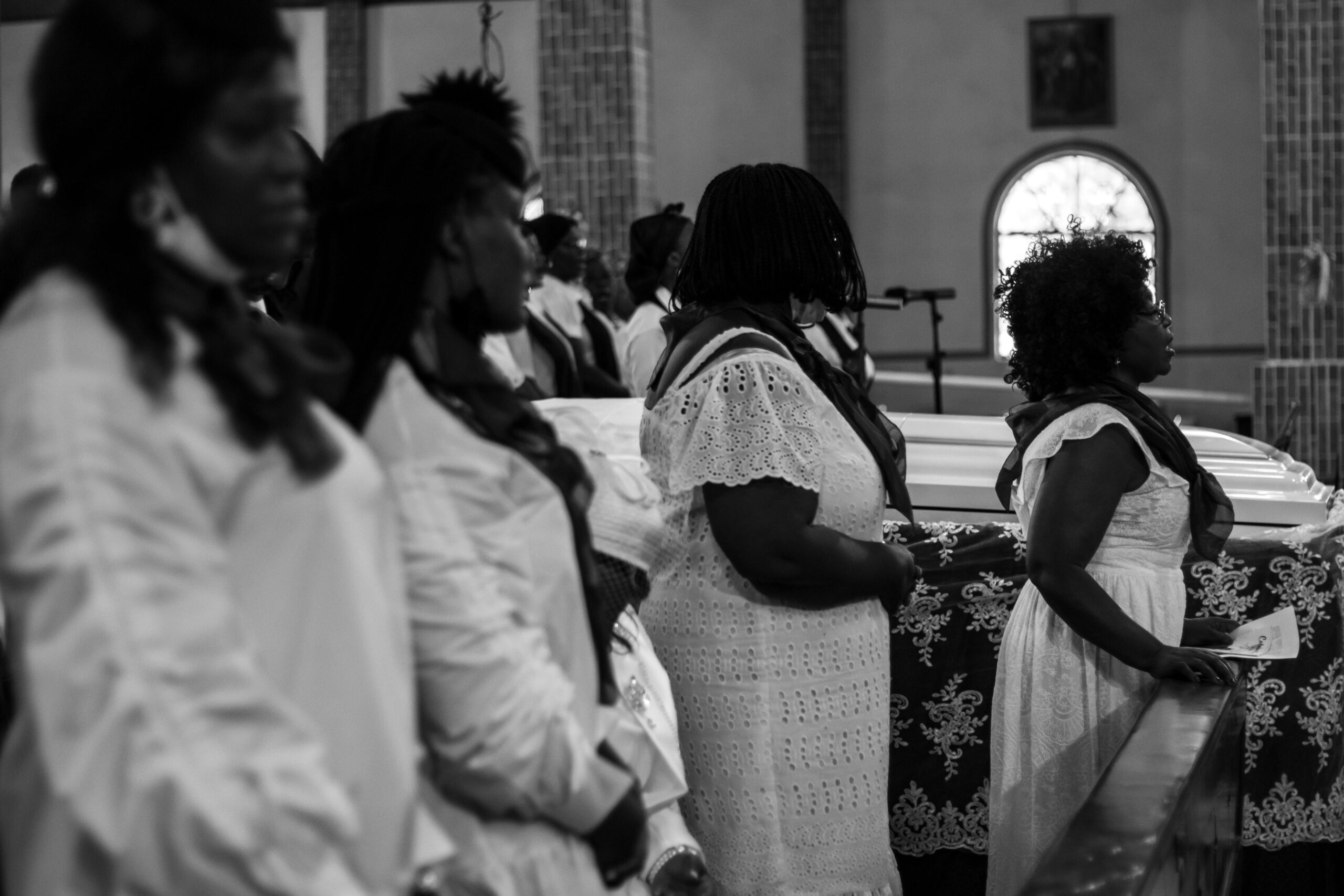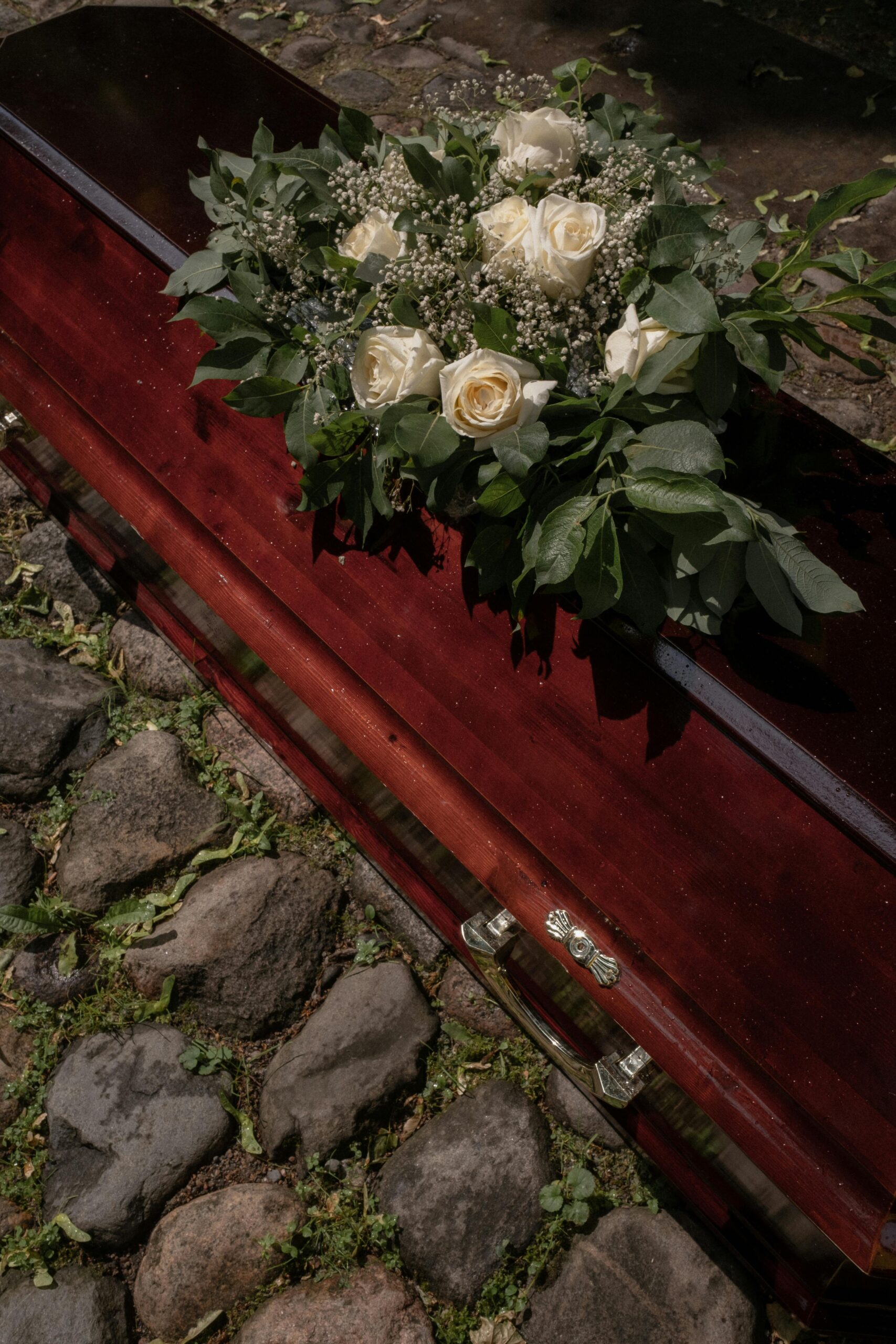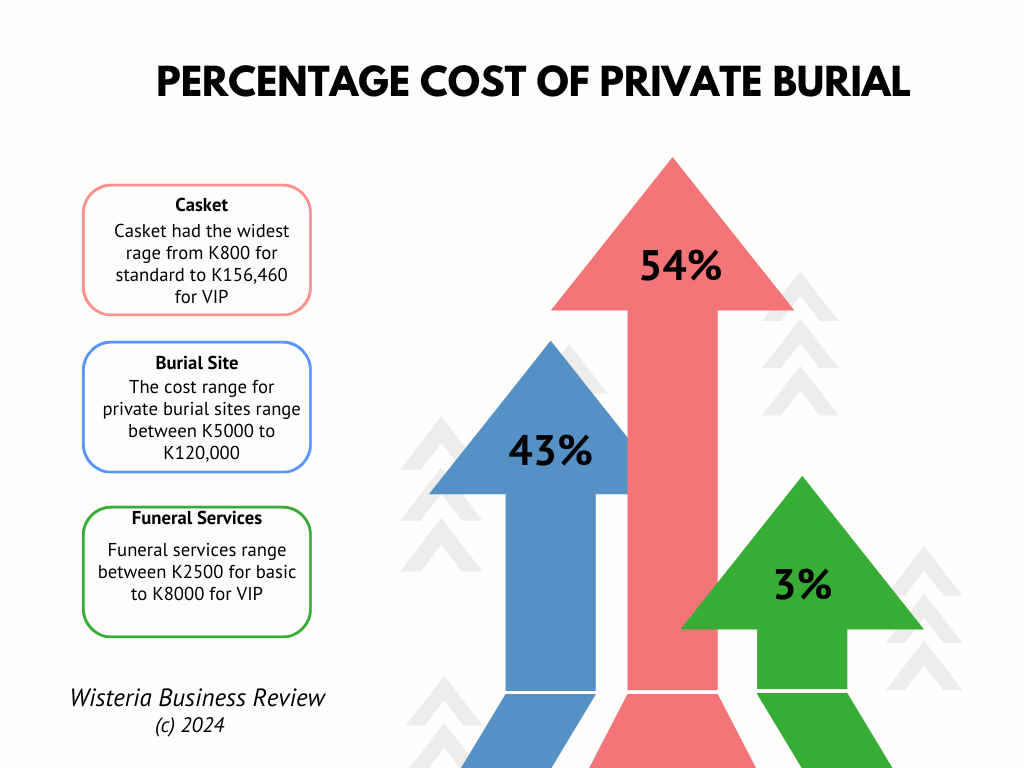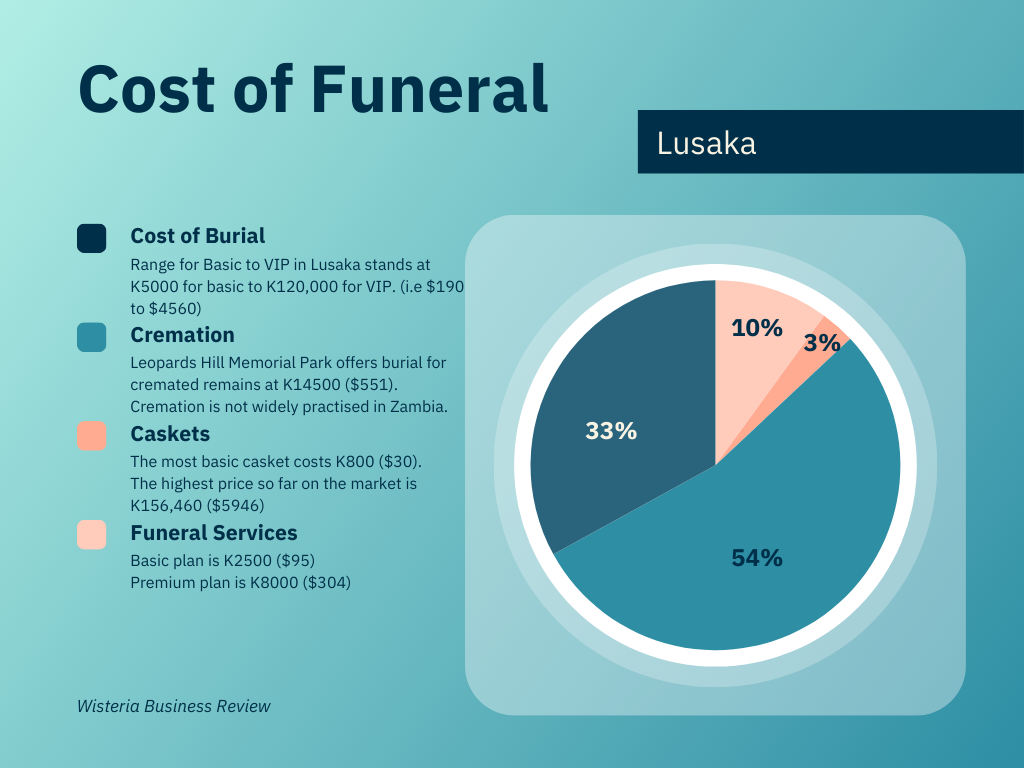
Culture not only shapes how we approach our daily lives but also influences, in a profound way, how we navigate the inevitable journey into the afterlife. In Zambia, however, there’s an unspoken taboo veiling discussions about death weaved within our culture. The mere act of broaching the subject is often considered taboo, leading many to avoid planning for the inevitable. This cultural hush around mortality contributes to a pervasive lack of financial preparedness for one’s own demise. Consequently, the burden of funeral expenses falls heavily upon the shoulders of surviving relatives or the one considered the bread winner within the extended family. In this article, we unravel the veils surrounding the costs associated with dying in Lusaka, delving into a narrative we must openly discuss and not dismiss to merely whispering about it in queer corners.
Is Burial the Most Cost-Effective Way of Disposing of the Deceased?
In Zambia, burial stands as the primary funeral custom for the majority of tribes. As mourners gather to bid their final farewells when a funeral is announced, it’s a common practice for them to bring food or monetary contributions for the bereaved family. Yet, the responsibility of providing sustenance during this trying time ultimately falls upon the shoulders of the hosting family, that is, from handling the deceased’s remains to deposing of them through burial. Although cremation is permitted by local laws, the practice is frowned upon by most Zambians due to religious and cultural beliefs.
The practice of burning corpses has been around since prehistoric times but as the influence of the major Abrahamic religions, namely Christianity, Judaism, and Islam expanded, cremation faced major disapproval leading to it vanishing in most cultures across the world. Today, this method of dealing with the departed is observed in at least 31 jurisdictions globally, predominantly in regions characterised as developed or advanced economies. Although cremation is seen as a taboo in some African states, the practice is not outrightly outlawed. Cultures that embrace cremation often view it as a cost-effective alternative to traditional burial methods, driven in part by the challenge of limited land availability for graves. In the context of Lusaka, for instance, the city requires an estimated 30 hectares annually to accommodate its deceased population through traditional burials.
The Cost of Dying

The true ‘cost of dying’ isn’t just about tears and loud wails or the emotional and psychological blow that the grieving family is dealt by the cold hand of death; it’s a pragmatic look at the financial implications that accompany farewells. From the essential gravesite to the choice of a casket, transport logistics, and those personal touches that make a funeral unique, it’s clear to see that grief sometimes comes with a hefty price tag.
Within urban Lusaka, the Funeral Services Unit at the Lusaka City Council handles the delicate balance between life and death. Government-backed funeral services fall under the jurisdiction of the Public Health Act CAP 295 and the Local Government Act CAP 281. These services encompass the allocation of burial spaces, categorised as high cost and medium cost at Leopards Hill cemetery, charging fees of up to K2000. Chunga and Chingwere are offered for free. However, the availability of grave spaces is often constrained, with the Lusaka City Council’s offerings scattered in isolated pockets of land. There have been reports of bodies being exhumed by heavy downpours.
Beyond the two cemeteries placed at the more economical spectrum, the fiscal side of grief takes a harsh turn. For those with the financial means or a willingness to invest in private burial grounds, the Leopards Hill Memorial Park in Lusaka provides a more upscale option, ranging from K12,500 for standard burial sites to K120,000 for VIP plots. Cremation burial sites are also available, priced at K14,500. An alternative choice is Mutumbi, another private burial site that presents more budget-friendly alternatives across its sprawling 60-hectare expanse, ranging from K5000 to K18,000.

Caskets, an integral part of these final rites, come with varying price tags, starting from K800 and reaching up to K156,460 for the most dignified selections. Decent funeral service packages, ranging from K2500 to K8000, cover a spectrum of offerings including body removal to the parlour (within town), storage, individual fridge tray, private body wash, hearse, carpets for tents and grave, lowering device, chairs, drinking water, and more. The extent of these services is tailored to the preferences of the deceased’s family, reflecting a deeply personal touch in bidding farewell to their loved one.
Hosting a Funeral
In Zambia, the duty of organising the funeral falls squarely on the shoulders of the deceased’s family. As friends and family come together to say their last goodbyes, it’s customary for attendees to bring food or make monetary contributions to support the grieving family. However, the responsibility of ensuring everyone is well-fed, sheltered, and transported through this challenging time rests entirely on the hosting family. Imagine coordinating meals, accommodations, and transportation not just for close relatives but also for unexpected guests who may drop by out of curiosity only to find that lunch is being served. In the context of a funeral in Lusaka, hosting expenses vary based on factors such as the duration of the funeral, dietary preferences influenced by the family’s financial situation, transportation needs within the city, the number of attendees, the age and social standing of the deceased, and a host of other considerations unique to the family and how they would like to mourn their dead.
Modern families blessed with financial resources are adopting novel approaches to funeral hosting. Instead of, for instance, burdening themselves with the task of cooking for the grieving attendees, some are opting to hire professional chefs or culinary services. These services not only alleviate the logistical challenges of meal preparation during an emotionally taxing time but, for some, serve as a testament to their financial affluence. From elaborate meals prepared by skilled chefs to the provision of chairs and marquees, these services not only offer practical support but also make a profound statement about the family’s financial standing. In these instances, the true cost of hosting a funeral becomes not only unfathomable but, in certain cases, reaches staggering heights of expense.

For calculation purposes, taking the mid-point of the given ranges, the estimated cost of a ‘decent’ funeral in Lusaka amounts to K48,793 ($1854) It’s important to note that this figure excludes hosting expenses. In an upcoming article, we will delve into the breakdown of the average cost of hosting a funeral in Lusaka and, more crucially, discuss financial preparations everyone should consider for their inevitable send-off.
Comparison to other countries
How does the cost of dying in Lusaka or, more broadly, Zambia, measure up against other nations? While Lusaka stands out as the most expensive place for a final farewell within the country, the cost of dying in Zambia pales in comparison to the expenses incurred in other countries, both on the African continent and globally. Notably, South Africa claimed the title of the most expensive country to die in Africa in 2020, as reported by SunLife. In this global assessment, only Japan, Germany, and China surpassed South Africa in funeral expenses. The report underscored the intricate connection between the cost of a funeral and the prevailing traditions, culture, and religions in a given region. Countries with deeply rooted beliefs in elaborate burial ceremonies often find themselves with a higher funeral bill.
- 13 Life Lessons I Learnt as a Teacher - July 23, 2024
- 13 Life Lessons I Learnt as a Teacher - July 22, 2024
- 13 Life Lessons I Learnt as a Teacher - July 21, 2024



